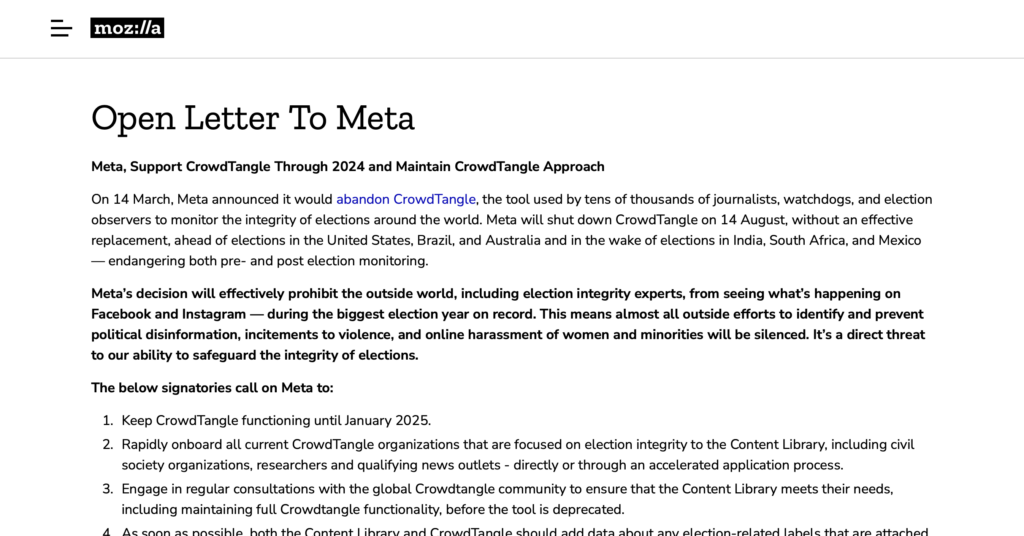Making Sense of the Election Security Legislation Landscape
It might sound surprising but there have been over 30 election security bills introduced this Congress. With names like DETER, KREMLIN, PAVE, PRIDE, and SIMPLE it can be difficult to keep track of them and understand what distinguishes them from each other. It’s clear that many in Congress understand that now is the time for the federal government to set the strategic goals and provide the necessary support for state and local officials to secure the elections for 2020 and beyond.
For the most part, the bills focus on several key areas for improving security that CDT supports: paper ballots, audits, and fortifying the cybersecurity support for state and local jurisdictions. A voter-verifiable paper ballot is a critical step in securing our election ecosystem. A few states still rely on direct-recording electronic (DRE) machines that do not produce a paper trail. This paper trail is necessary in order to enable the voter to verify their ballot before it is cast and for election officials to conduct a post-election audit. Making audits a regular part of validating the results of every election would boost voter confidence in the electoral process. A specific type of audit called a risk-limiting audit (RLA) is a new method of sampling a relatively small number ballots in order to reach a high level of confidence in the outcome of an election. It is therefore no surprise that policymakers are encouraging these as a cost-effective alternative to a full hand recount. The last key area of focus calls for a more inclusive definition of the election security ecosystem and critical examination of its vendors. Devices such as electronic pollbooks (e-pollbooks) and election night reporting (ENR) servers are outside of the current definition, despite being critical components of the election process. Significant funding is required to support the purchase of new equipment and cybersecurity training necessary to operate that equipment safely and securely.
There are other elements of these bills that should be reconsidered. They may be well-intentioned but would significantly impact the administration of elections and curtail the ability of some voters to cast their ballots privately and securely. The For The People Act is the most comprehensive bill, which unfortunately means that it also includes the greatest number of controversial elements, such as automatic voter registration and Election Day as a federal holiday. This is almost overshadowed by the fact that this piece of legislation is basically a symbolic marker put forward by House Democrats as a means of signaling the priority for the House majority. On the other hand, the DETER Act is narrowly tailored in its focus on only foreign agents who interfere in U.S. elections. While social media platforms have been increasingly aggressive about detecting and removing inauthentic foreign content, the risk of domestic disinformation influence remains the more difficult threat to counter because once amplified, false messages can be more popular even in the face of accurate or corrected messages. The PAVE Act takes the most aggressive approach to shore up security for 2020. The strict ban on electronic returns and reduced availability of ballot marking devices significantly disadvantages millions of military / overseas voters and even more voters with accessibility needs. It is imperative that security and accountability be carefully balanced with the privacy and independence of all voters.
Of the dozens (and dozens) of voting-related bills introduced in the past 6 months, nearly 40 have specific provisions for improving security and accountability throughout the entire election process from registration to certification. The fact of the matter is that nearly all of them will fail to even be considered at the committee level. Even the Republican Chair of the Senate Rules Committee, Roy Blunt, is pessimistic about the chances of an election security bill making it to the Senate floor for a vote. He has good reason to be pessimistic: last year the Secure Elections Act suffered from a last-minute Committee cancellation despite momentum from strong bipartisan support. The critical path to any election security bill passage goes through Senate Majority Leader Mitch McConnell, who has been a steadfast blockade on the issue. We hope that he will be swayed to reconsider by the intelligence reports outlining the threats to the 2020 elections. In the meantime, members of Congress will continue to respond to the pressing need to secure our elections by advocating additional support to state policymakers, local election officials, and all voters.
The table below provides an overview of each of the election security-related bills, the sponsor, number of co-sponsors, and the status as June 19, 2019.
|
Name | Sponsors/ Co-sponsors | Overview |
Status |
| HR 1 For The People Act | Sarbanes + 236 | Easier voter registration, paper ballots, one-time $1B & annual $175M grants, Increased scrutiny of election infrastructure vendors, Baseline cybersecurity incident reporting requirements, no DREs | Passed House |
| S 949 For The People Act | Udall + 46 | Easier voter registration, paper ballots, one-time $1B & annual $175M grants, Increased scrutiny of election infrastructure vendors, Baseline cybersecurity incident reporting requirements, no DREs | Introduced |
| S 1540 Election Security Act | Klobuchar + 40 | Paper ballot, grants for security & RLAs, expand election systems to include e-pollbooks, domestic manufacturing, bug bounty program, grants advisory committee | Introduced |
| HR 2660 Election Security Act | Thompson + 48 | Paper ballot, grants for security & RLAs, expand election systems to include e-pollbooks, domestic manufacturing, bug bounty program, grants advisory committee | Introduced |
| S 1319 PRIDE Act | Menendez + 3 | Paper ballots, RLAs, implement NIST cybersecurity standards | Introduced |
| S 1472 PAVE Act | Wyden + 15 | Paper ballots, RLAs, implement cybersecurity standards. $500M scanners & $250M for BMDs | Introduced |
| S1328 DETER Act | Durbin + 4 | To designate foreign persons who improperly interfere in United States elections as inadmissible aliens, and for other purposes. | Passed Senate |
| S 1321 Defending the Integrity of Voting Systems | Blumental + 2 | Add voting systems and election administration support systems to CFAA | Out of Committee |
| HR 753 Global Electoral Exchange Act of 2019 | Castro + 6 | Promote international exchanges on best election practices | Passed House |
| HR 2286 To amend the National Security Act of 1947 | Stefanik + 8 | Provide to the congressional intelligence committees a briefing on the counterintelligence activities of the FBI on elections & campaigns | Introduced |
| S 955 Polling Place Protection Act of 2019 | Merkley | More polling place staff, equal access to polling places, reduced wait times | Introduced |
| S 825 Protect our Elections Act | Van Hollen + 3 | Ensure domestic ownership and control of election service providers | Introduced |
| S 823 Election Systems Integrity Act | Cardin + 3 | Information sharing with respect to the ownership of election service providers. | Introduced |
| HR 1694 Native American Voting Rights Act of 2019 | Lujan + 87 | Protect the voting rights of Native American and Alaska Native voters | Introduced |
| S 739 Native American Voting Rights Act of 2019 | Udall + 15 | Protect the voting rights of Native American and Alaska Native voters | Introduced |
| HR 1617 KREMLIN Act | Krishnamoorthi + 3 | ODNI to submit intelligence assessments of the intentions of the political leadership of the Russian Federation | Passed House |
| HR 1631 Postage Free Ballot Act | Veasey + 4 | Reimbursement of Postal Service for costs associated with absentee ballots | Introduced |
| HR 1573 Disability Voting Rights Act | Scanlon + 2 | Promote access to voter registration and voting for individuals with disabilities (Permanent absentee, electronic communication for voter information, ballot tracking) | Introduced |
| HR 1546 To amend the Help America Vote Act of 2002 | Wild + 14 | Establish a minimum period for early voting | Introduced |
| HR 1512 FAST Voting Act of 2019 | Connolly + 2 | Invest in practices and technology designed to expedite voting at the polls and simplify voter registration, improve voting system security, and promote automatic voter registration | Introduced |
| HR 1493 Cyber Deterrence and Response Act of 2019 | Yoho + 12 | Designate critical cyber threat actors and institute sanctions | Introduced |
| HR 1474 Strengthening Elections Through Intelligence Act | Spanberger + 7 | ODNI submit a pre-election threat assessment prior to each regularly scheduled general election | Introduced |
| S 602 Cyber Deterrence and Response Act of 2019 | Gardner + 1 | Designate critical cyber threat actors and institute sanctions | Introduced |
| HR 1273 KREMLIN Act | Krishnamoorthi + 1 | ODNI to submit intelligence assessments of the intentions of the political leadership of the Russian Federation | Introduced |
| S 482 Defending American Security from Kremlin Aggression Act of 2019 | Graham + 4 | Strengthen the NATO, to combat international cybercrime (cause damage to a critical infrastructure computer), and to impose additional sanctions with respect to the Russian Federation | Introduced |
| S 324 Global Electoral Exchange Act of 2019 | Klobuchar + 1 | Promote international exchanges on best election practices | Introduced |
| HR 378 Safeguarding Election Infrastructure Act of 2019 | Dingell | Voter-verified, auditable paper record of the votes cast in such elections, to require State election officials to audit the results of such elections prior to certifying the results, to provide grants to States to improve voting system security | Introduced |
| HR 52 Security for the Administration of Federal Election from Terrorists Intervention Act of 2019 | Jackson Lee | DHS to submit to the Government Accountability Office (GAO) and Congress a report on actions taken by DHS relating to terrorist threats to the integrity of the 2016 federal elections. The GAO shall conduct an assessment of the effectiveness of such actions and include recommendations for improvements. | Introduced |
| HR 118 SIMPLE Voting Act of 2019 | Cohen + 18 | Early voting, more polling place staff, equal access to polling places, reduced wait times, EAC issue standards for the administration of early voting. | Introduced |
| FY2020 Financial Services and General Government Appropriations Bill | $600M EAC grant for replacing DRE machines using 5% state matching funds with 50% for local jurisdictions. | Out of Committee | |
| HR 2722 SAFE Act | Lofgren | One-time $1B & annual $175M grants for voter-verified permanent paper ballots, study of ballot design, risk-limiting audits, improve voting system security. | Introduced |


